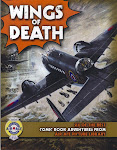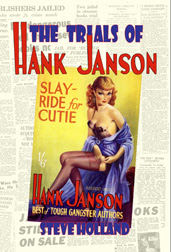Friday, May 09, 2008
William Benjamin Home-Gall
William Benjamin Home-Gall was born in Hong Kong in 1861 where his father was a sailor who lost his life when his ship The Champion foundered and went down with all hands. Willie Home-Gall was raised by his aunt Elizabeth Jane (nee Gall) and her husband William James Mallows, who ran a large farm in Beyton, near Bury St. Edmunds, Suffolk, and is said to have been the beau ideal of a country gentleman. He was educated in Bury St. Edmunds but was unhappy there and ran away twice. He was then sent to Framlingham College where he shared a small dormitory with five older boys who bullied him unmercifully. After one term he was moved to another dormitory and later recalled that Framlingham was “ a jolly school, with a splendid old castle near by.”
“I afterwards went for two years to a private tutor, riding to his house every morning on a young cob my uncle had given me, staying to lunch, and returning home to dinner. The clergyman’s son and myself soon became the terror to the countryside. We were never out of mischief. Once we blew up a drain which ran across the public roa, and then my chum, by dropping a lighted fusee into a can in which he had placed some gunpowder, to watch the effect, blew off his eyebrows and a good part of his hair. This stopped out experiments with explosives for some time.
“My next move was to Preston, in Lancashire, where I had the proud distinction of being reported fifty-two times in one term.”
Determined to turn his work around and win at lest one prize, he decided to study hard at arithmetic but caught diphtheria which almost ended his chances of improving. Getting better, he was allowed to take his examination, but the excitement brought on a relapse and he was sent the two hundred miles home and spent six months unable to move. “But I got my prize.”
He then trained for the army but an unfortunate speech impediment barred him from pusuing a military career.
Home-Gall went to America, travelling from Liverpool to St. John’s, Newfoundland, thence to Halifax, to Baltimore, Washington, St. Louis, Milwaukee and Cincinnati. Later he travelled south to San Antonio and, whilst in Texas, worked as a farmer, growing maize, cotton and tobacco.
“For three days I was out with a sheriff’s posse after a band of horse thieves, meeting many adventures which, though exciting at the time, would read dull in print. I was on a ranch for some little time, and thoroughly enjoyed my experience as a cowboy. For the rest, I opened a skating rink, which paid well, but broke up half the town; caught chills and fever, and came home very ill.”
Returning to England he worked as a coachman and subsequently as a farmer in Newton, Suffolk, although seemingly without great success as he was receiving orders for bankruptcy in 1883.
He was married to Anna Louisa Amy Drelincourt at St. Mary Abbott’s in London on September 14, 1889 with whom he had two sons, Willie Bolingbroke and Edward Reginald, both of whom became writers.
In 1891 he was living at Beyton, near Bury St. Edmunds, and his occupation listed as farmer but, soon after, he began to try his hand as a writer and his first novel was published in 1892. Where Honour Sits was described by the Dublin Freeman’s Journal (29 July 1892) as “a stirring romance of love and war. Its hero plays no obscure part in the memorable Egyptian campaign of 1884-5, and its equally memorable desert march. The author demonstrates in the pages of this eminently readable story that he possesses no small acquaintance with the details of a soldier’s life.” The Liverpool Mercury (17 August 1892) complimented the author’s “careful study of history” but the Glasgow Herald (25 August 1892) was less complimentary, saying “We cannot say that the book is in any way a strong one. The plot is very old and is not touched up attractively, and the characters are too wooden to be natural. There is a want of vigour and life, and even during the most stirring incidents of the war the descriptions are somewhat tame and spiritless.”
“For two years, like the majority of literary men, I did not make enough money to pay for paper, but once I managed to get a start all went well,” he later recalled.
By the late 1890s he was well established writer for boys, contributing to Harmsworth’s The Boys’ Friend, Pluck, Boy’s Herald and Boys’ Realm, and Pearson’s Big Budget, usually under the pen-name Reginald Wray. He often wrote slapstick school stories, some of which also appeared in Chums. A notable series of science fiction yarns in Boys’ Friend (as Reginald Wray) featured Professor Kendrick Klux who was something of a combination of Doyle’s Professor Challenger and Haggard’s Professor Ptolemy Higgs. A story of future war, ‘Invasion of the British Isles’, set in 1899, was serialised in newspapers in 1897 under the byline of Col. Maude, V.C.—Colonel Francis Cornwallis Maude (1828-1900) having earned his Victoria Cross during the Indian Mutiny, although the story was (probably extensively) ghosted by Home-Gall.
As Wray he wrote the Dick Britton & Zena Race series of Western adventures in Pluck (although a later serial in the same paper placed them ‘Through the Enemy’s Lines’ during the Great War); he also wrote movie adaptations for Pluck and sports stories for Boys’ Realm.
He was very interested in the Boy Scout Movement and was the District Commissioner for the Hampton Court area.
Home-Gall was later remarried to Emma Edith Home-Gall. He died suddenly on 9 June 1933 following a heart attack.
Novels
Where Honour Sits. A tale of the Desert March, Egypt, 1884-85. London, Digby & Long, 1892.
Novels published anonymous (series: Sexton Blake)
State Secrets. London, Amalgamated Press (SBL 1/195), Oct 1921.
Novels as Adrian Home
From Circus to Mansion. London, Amalgamated Press (SGOL 1/19), Sep 1923.
The Snow Maiden. London, Amalgamated Press (SGOL 1/76), Dec 1925.
Novels as Winifred Wray
The Girl Who Put Mother First. London, Amalgamated Press (SGOL 1/50), Jan 1925.
Novels as Reginald Wray
Adventures on Land and Sea. Bristol, Arrowsmith (Cosmopolitan Series), 1901.
Tales of the Empire, told round the camp fire. Bristol, Arrowsmith (Cosmopolitan Series), 1901.
Beyond the Northern Lights. London, Thomas Burleigh (Reginald Wray Adventure series 1), 1903.
The Iron Way. London, Amalgamated Press (BFL 1/42), Feb 1908.
The Three R’s. London, Amalgamated Press (BFL 1/176), Dec 1911.
Under the Southern Cross. London, Amalgamated Press (BFL 1/179), Jan 1912.
Deep-Sea Gold. London, Amalgamated Press (BFL 1/226), May 1913.
The Boy Ventriloquist. London, Amalgamated Press (BFL 1/375), Apr 1917.
Fireman Jack. London, Amalgamated Press (BFL 1/388), Jul 1917.
The Treasure Seekers. London, Amalgamated Press (BFL 1/521), Aug 1920.
Frank Falcon’s Double. London, Amalgamated Press (Nugget Library 34), Sep 1920.
The Hidden World. London, Amalgamated Press (BFL 1/528), Oct 1920.
Railway and King. London, Amalgamated Press (BFL 1/631), Sep 1922.
NOTE:
Although Home-Gall penned stories for Boy's Friend using the pen-name Reginald Drew, the novel By the King’s Command by Reginald Drew (New York, Broadway Publishing, 1903) is not his. It is, in this instance, the pen-name of George Bray. (See Comments below)
Labels:
Author
Subscribe to:
Post Comments (Atom)
























































As always - very interesting, old bean! What happened to his first wife? You also mentioned his two sons became writers - in what field? His bibliography looks a bit thin to have sustained him and his family through his life!
ReplyDeleteHi Nandu,
ReplyDeleteNo idea what happened to wife number one. Divorce? Death?
The books bibliography disguises a lot of writing as he was primarily writing for boys' magazines: everything from short stories to serialised novels, many of which were never reprinted. Of his sons, E. R. Home-Gall also became a very prolific writers for boys whilst W. B. Home-Gall was an editor, sometimes writer, and later gave it up to become an engineer.
on January 8, 1901 George Bray (Reginald Drew) wrote to the New York Times Saturday Review of Books defending "By the King's command". At that time he lived in Ponca Nebraska.
ReplyDeleteI have a 1904 copy of the book which was donated to Henderson Bible School Library in Henderson, NE. This book was given to the owner by the author (Rev. Bray, Ponca Neb. This book was a gift to Dr. C.L. Sievers of Samaritan Hospital of Sioux City, Iowa.
Dr. Sievers dated and signed the book mentioning the author's appreciation for the care given to his son during his prolonged illness at the hospital.
is this info on a son?
Burt county obits: Irma Marian BRAY, 81: Born 28 Jul 1924 near Blair, NE. Married George Bray at Arlington, NE. Resident of Lyons, NE. she Died Fri. 24 Feb 2006 at hospital in Omaha, NE. Predeceased by 3 sons - Rodney, Clark & Gary.